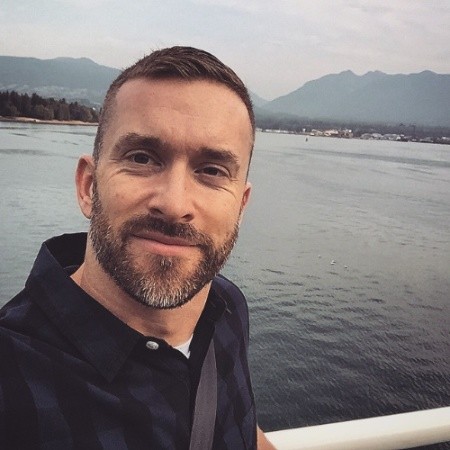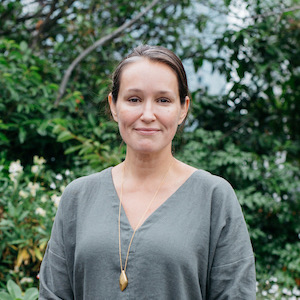
Dr. Mark Lysyshyn
The continued rise in overdose deaths from toxic drugs in B.C. has prompted the development of innovative programs in an attempt to save lives.
The Safer Alternative for Emergency Response (SAFER) program – a collaboration between Vancouver Coastal Health (VCH), PHS Community Services Society (PHS) and the BC Centre on Substance Use (BCCSU) – provides a flexible and low-barrier supply of pharmaceutical-grade opioids to those in greatest need.
“This innovative and evidence generating program integrates harm reduction, addiction medicine, public health and social services to help those at greatest risk of dying from an overdose," says Dr. Lysyshyn.
He goes on to say that, based on initial informal assessments, the program has the potential to increase the options for helping people who use illicit substances. “SAFER can be an effective alternative to conventional forms of treatment and harm reduction which may not have worked for people in the past."
VCH and others have been advocating for safer supply initiatives to provide alternatives to the contaminated illegal drug supply, as B.C. experiences record numbers of overdose deaths. The COVID-19 pandemic further exacerbated the already rampant overdose crisis, as people found themselves using increasingly toxic drugs in isolation.
As of June 2022, there were 60 participants enrolled in the SAFER program, which is located at 73 East Hastings Street in Vancouver. The program is targeted to people in Vancouver who are at risk of overdose from accessing toxic street drugs, but do not qualify for, or have not benefited from, other available treatments.
Dr. Lysyshyn points out that people who use substances often face stigma, including when they interact with the health care system, and suggests a patient and considerate approach be taken when dealing with them.
“It is critical that health care professionals provide kind and compassionate care to people suffering from addictions, and connect them with the services that are right for them," says Dr. Lysyshyn.
The SAFER program will be rigorously evaluated by the BCCSU to assess the impacts of this model, generating evidence that will inform program delivery and the development of clinical guidance to support other prescribed safer supply programs in B.C.
Improving delivery of care for patients with substance use disorders

Dr. Ashley Smith
The grip of substance use on our society is only strengthening, with one in five Canadians now meeting criteria for the diagnosis of a substance use disorder (SUD) at some point during their lifetime. More people are developing downstream health consequences as a result, leading to increased emergency department (ED) visits.
This grim conundrum piqued the curiosity of Dr. Ashley Smith, a consultant physician at Vancouver General Hospital (VGH), who spearheaded a Physician Quality Improvement (PQI) project aimed at increasing access to addiction medicine specialist care, and in turn, improving care delivery in the ED.
Dr. Smith, who works in the Complex Pain and Addiction Service (CPAS) at VGH, says she relishes the opportunity to help people with SUDs.
“I find it rewarding to work with individuals dealing with substance use issues, as it combines many aspects of medicine – pharmacology and toxicology, population health and psychiatry, to name a few," says Dr. Smith.
She says the involvement of an in-patient addiction medicine team, like the CPAS, has been shown to not only decrease 30-day readmission rates, but also to increase patient engagement with outpatient care.
Perhaps more importantly, however, she says that the CPAS appears to be greatly underutilized, as depicted by the numbers.
“As many as one out of 11 visits to the ED are directly related to SUDs, yet only about half of the patients who might benefit from an addiction medicine consult cite primary substance use disorder as their chief concern," says Dr. Smith.
A key factor in Dr. Smith's strategy involved a large time investment upfront to understand the culture and process in the ED, and to build effective relationships.
“I found the interdepartmental nature of this work very exciting," says Dr. Smith. “Building and strengthening these relationships helped to increase the referral number, by increasing awareness around the goal to improve the CPAS presence in the ED."
She says although the project work was a valuable and enjoyable experience overall, it was not without its challenges.
“Communication was the most difficult aspect of this project," says Dr. Smith. “The ED is comprised of a large multidisciplinary group of health care professionals, patients and services, all intersecting at once, so learning how to communicate salient information effectively was crucial."
Dr. Smith says she was fortunate to have two doctors with emergency medicine and addiction medicine training, Drs. Jessica Hann and Anne Sutherland, to help inform the flow through the ED.
“I relied heavily on discussions and meetings with colleagues and other stakeholders to better understand the process and culture in the ED, and Drs. Hann and Sutherland were both instrumental in this regard," says Dr. Smith.
She looks forward to Dr. Sutherland's PQI project in the ED this fall, and encourages others who might be interested in quality improvement (QI) to enroll in an upcoming training session, and see what inspires them.
“I thoroughly enjoyed the process and will definitely make QI part of my practice moving forward," says Dr. Smith. “I am excited to be building a culture of QI on the CPAS team, and I look forward to further improving delivery of care in the ED."
Take-home fentanyl test strips prove useful as low-barrier drug checking approach
A B.C.-led research study compared fentanyl detection rates using take home test strips with those tested by trained staff at harm reduction sites. Research was conducted by VCH, BC Centre on Substance Use, BC Centre for Disease Control, Interior Health and the First Nations Health Authority and was published this year in the International Journal of Drug Policy. Read more about the study.
Innovative washroom system aims to keep clients safe
A first-of-its-kind in the region, a site implemented new procedure to help ensure clients remain safe in a washroom. New sensor alert technology that tells staff when someone may be in distress or need help. Read more on oneVCH.
Preparation for changes to Medical Assistance in Dying eligibility in 2023
In March 2023, patients with a sole underlying diagnosis of a mental illness will be able to apply for, and where eligible, receive Medical Assistance in Dying (MAiD). This is one of the key changes from the passing of Bill C-7 by the Canadian Federal Government in March 2021. The Bill aims to balance the autonomy of individuals who are eligible to receive MAiD with the protection of vulnerable individuals who are seeking information to address their intolerable suffering.
VCH's Assisted Dying Program (ADP) and Regional Mental Health and Substance Use (RMHSU) Program are collaborating to ensure that VCH staff and medical staff receive accurate and consistent information about the coming changes related to individuals with a sole diagnosis of mental illness.
This includes creating an education plan, leadership engagement strategy and resources for staff and health service users and their families. This is with consultation and strategic direction provided by medical and operational leadership from RMHSU and ADP, representation from Indigenous Health, VCH Ethics, Legal, Client Relations and Risk Management, as well as a member with lived/living experience with mental health issues and psychiatric care within our system. In addition to these regional efforts, VCH MHSU operational and medical leadership are part of the provincial MHSU/MAiD subcommittee that brings together leadership from each health authority and several ministries.
VCH recognizes that there are questions and concerns about this legislation and its potential implications. Medical staff are encouraged to participate in dialogue with committee members or regional leaders, in upcoming MAiD roundtable discussions planned for fall 2022, or with one-on-one conversations and support any time by contacting: Laurel Plewes, Director, ADP, at laurel.plewes@vch.ca or Andrew MacFarlane, Regional Director, RMHSU, at andrew.macfarlane@vch.ca.
VCH is committed to supporting medical staff through this process and to providing safe, appropriate, timely access to clients who choose the care option of MAiD.
Update: Mental Health Act
B.C.'s Mental Health Act (MHA) mandates the involuntary admission and treatment of individuals with serious mental health concerns to protect themselves and/or others. As involuntary admissions involve an extraordinary use of power, procedural safeguards are established and maintained through the timely completion of MHA Forms.
While the recent Ombudsperson's investigative report identified progress in MHA compliance since the release of the Committed to Change report in 2019, there remain ongoing challenges with Form completion and quality. To support MHA education, all medical staff who admit and/or treat under the MHA are required to complete the BC Mental Health Act course within one month of hire, and every two years thereafter. For questions about the training, please contact Maja Kolar at mkolar@providencehealth.bc.ca.

